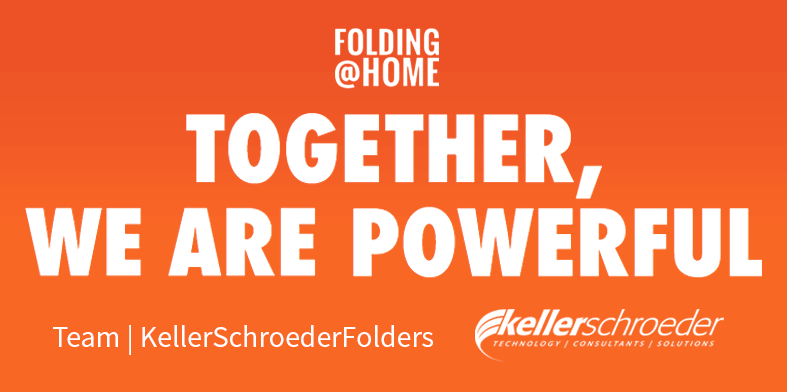 Bryan Blubaum | Enterprise Architect, Data Strategy Group
Bryan Blubaum | Enterprise Architect, Data Strategy Group
Connect with Bryan on LinkedIn
I’ve always been a hardware guy. It’s a great feeling to piece together bare-metal IT infrastructure solutions to meet a need and to know that whenever you press that power button, you can watch your creation come alive.
But you see, sadly, most hardware sits idle most of its useful life. The potential is never met. We think we’re working our desktops hard because we’re running multiple programs and getting work done. But in fact, hardware technology has come so far in such a short time, that simple tasks like word processing, internet browsing, and Instagram viewing only consume a small fraction of what our hardware is capable of. So now, hold that reality in mind as I tell you a feel-good true story of idle hardware being donated to a good cause…
In the early days of the pandemic in the U.S., a small group of Keller Schroeder employee-owners banded together to help fight COVID-19 non-stop and around the clock. They still led their normal lives, working their normal jobs and making positive impacts on clients, without taking time away from their normal work or their families. “How was this possible?” you ask. Well, it wasn’t the kind of typical volunteerism you might expect. Rather, they devoted their personal hardware resources to the world’s most powerful distributed supercomputer, Folding@Home. This global project allows researchers to run biological simulations (of protein “folding”) to understand the disease and how to fight it, and harness this incredible computer to conduct the research. And all the team had to do was install the Folding@Home software to allow the researchers to use their machines’ processors. (We’re the “KellerSchroederFolders”, in case you were wondering: https://stats.foldingathome.org/team/263659).
Why do I tell you this story? Well, since jumping into the world of Data Strategy Consulting, I see hardware a bit differently now. Most of my clients see hardware as a cost – something to budget for, a necessary part of doing business. But hardware is an asset sitting on your balance sheet, with a depreciable life, and the whole bit. So, it follows that you should be able to calculate the return on those assets. And guess what? Your hardware asset utilization is probably extremely low compared to your other physical assets. Therefore, your hardware ROA (h-ROA) is nowhere near where it could be.
So what if you could put your idle hardware to a more productive purpose, a greater good, just like our heroes “donated” their hardware’s unused compute power to Folding@Home? What sort of strategic purpose might you assign to your hardware assets? Maybe predictive modeling? Logistics or facilities optimization? Automated intelligent decision making? Participate in crypto-currency markets? What comes to mind for you in your industry?
So what if you could put your idle hardware to a more productive purpose, a greater good, just like our heroes “donated” their hardware’s unused compute power to Folding@Home? What sort of strategic purpose might you assign to your hardware assets? Maybe predictive modeling? Logistics or facilities optimization? Automated intelligent decision making? Participate in crypto-currency markets? What comes to mind for you in your industry?
Regardless of the possibilities, you have to have a strategy and execute it well to move beyond hardware as a plain old cost. As anyone that manages an IT infrastructure budget can tell you, hardware is pricey. And while cloud computing may have its merits, that can also get expensive without a well-thought-out plan. (By the way, the cloud providers are getting very high h-ROA!) Luckily, Keller Schroeder’s Data Strategy Group is here to support you on your journey. We start every engagement by identifying your strategic needs and then pursue self-funding use cases in collaboration with you. So take inspiration from Folding@Home, and contact us today to help you envision the possibilities.





